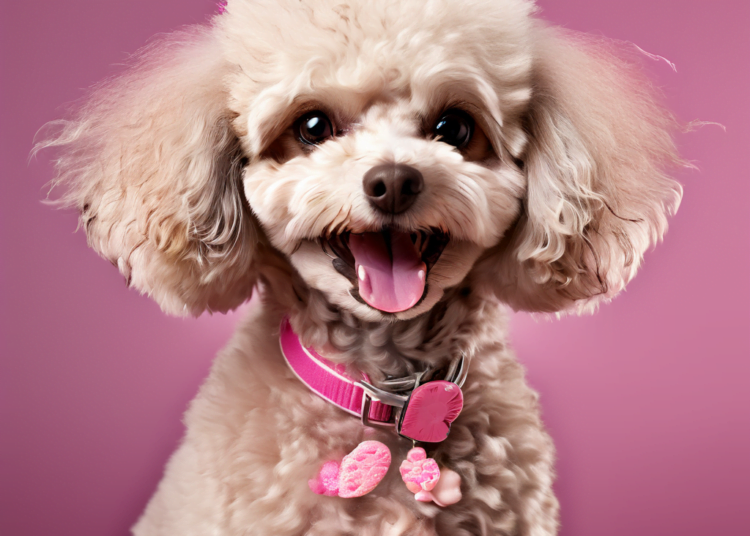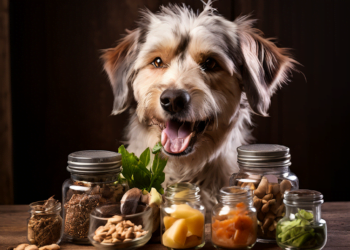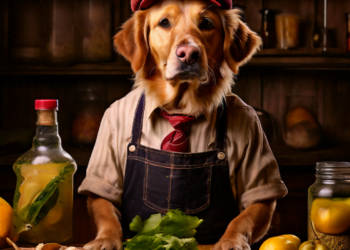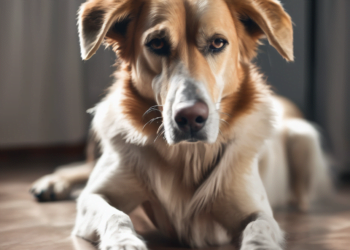Welcome to our comprehensive Poodle Care Guide! You will find expert tips and advice on keeping your Poodle happy and healthy here. Whether you’re a first-time Poodle owner or have had these delightful dogs as companions for years, our guide will provide valuable insights into their unique care needs.
Grooming, diet, exercise, training, health care, and socialization are all crucial aspects of responsible Poodle ownership. By understanding the specific requirements of this fluffy breed, you can create a safe, stimulating, and loving environment for your Poodle to thrive.
This guide will explore the Poodle breed, discuss essential grooming techniques, delve into dietary recommendations, and provide insights into training, health care, and socialization. Additionally, we’ll highlight important safety tips and essential accessories to ensure your Poodle’s well-being.
So, whether you’re a proud parent of a Toy Poodle, Miniature Poodle, or Standard Poodle, our guide has you covered. Let’s dive in and discover the secrets to raising a happy and healthy Poodle!
Key Takeaways:
- Understanding the Poodle breed variations is essential before addressing their care needs.
- Regular grooming, including brushing and maintaining their luxurious coat, is crucial for Poodles.
- Feeding your Poodle a balanced and nutritious diet is key to their health.
- Providing adequate exercise and mental stimulation keeps Poodles happy and content.
- Training your Poodle using positive reinforcement techniques establishes good behavior and obedience.
Table of Contents
Understanding the Poodle Breed
Before diving into Poodle care, it’s essential to understand the different types of Poodle breeds. Each variation has its characteristics and care requirements, from the tiny Toy Poodle to the elegant Standard Poodle and the in-between Miniature Poodle.
Toys Poodles
Toy Poodles are the smallest Poodle breeds, standing less than 10 inches tall at the shoulder. Despite their small size, they are full of energy and intelligence. Toy Poodles are ideal for apartment living and are well-suited for families with limited space. They require regular exercise to prevent weight gain and mental stimulation to keep their curious minds occupied.
Standard Poodles
Standard Poodles are the largest of the three Poodle breeds, measuring over 15 inches tall at the shoulder. They are known for their elegance, intelligence, and versatility. Standard Poodles excel in various activities, such as agility, obedience, and therapy work. They require regular exercise to keep them physically fit and mentally stimulated, ensuring they remain happy and healthy companions.
Miniature Poodles
Miniature Poodles are between Toy and Standard Poodles in size, standing between 10 and 15 inches tall at the shoulder. They are known for their affectionate and lively nature. Miniature Poodles are adaptable companions, suitable for apartments and larger households. Like their Toy and Standard counterparts, they exercise regularly to maintain their well-being.
Poodles come in various sizes, each with unique temperaments and requirements. Whether you decide on a Toy, Standard, or Miniature Poodle, understanding their differences is essential for providing proper care and ensuring a happy and healthy life for your beloved furry friend.
| Breed | Size | Characteristics | Care Requirements |
|---|---|---|---|
| Toy Poodle | Less than 10 inches tall at the shoulder | Full of energy and intelligence | Regular exercise and mental stimulation |
| Standard Poodle | Over 15 inches tall at the shoulder | Elegant, intelligent, and versatile | Regular exercise and mental stimulation |
| Miniature Poodle | Between 10 and 15 inches tall at the shoulder | Affectionate and lively | Regular exercise and mental stimulation |
Poodle Grooming Tips
Regular grooming is crucial in maintaining the appearance and overall well-being of your beloved Poodle. To ensure your fluffy Poodle looks and feels its best, we have curated a list of essential grooming tips that cover brushing techniques, coat maintenance, and recommended grooming tools.
Brushing Techniques
Brushing your Poodle’s coat regularly helps prevent matting and keeps their fur healthy and tangle-free. Start by gently combing through the hair, ensuring you reach the skin. Use brushes specifically designed for Poodles, such as slicker or pin brushes, to effectively remove loose hair and prevent shedding. Pay extra attention to areas prone to matting, like behind the ears, the belly, and the hindquarters.
Coat Maintenance
Proper coat maintenance is essential for Poodles, known for their luxurious, curly fur. Regularly trim your Poodle’s hair to maintain a neat appearance and prevent it from becoming too long and unmanageable. Additionally, consider professional grooming sessions every 4-6 weeks to ensure your Poodle’s coat is expertly maintained. Consulting a professional groomer can also help keep your Poodle’s coat healthy and free from common issues such as dryness or excessive oiliness.
Recommended Grooming Tools
Investing in the correct grooming tools is crucial for effective Poodle grooming. When selecting tools, opt for high-quality, specifically designed products for Poodle breeds. Here’s a list of essential grooming tools:
| Grooming Tool | Description |
|---|---|
| Slicker Brush | A brush with fine, short wires perfect for removing tangles and mats from your Poodle’s coat. |
| Pin Brush | A brush with long, rounded-tip pins ideal for removing loose hair and preventing matting. |
| Curved Scissors | Specialized scissors with a curved blade to assist in precise trimming around the Poodle’s face and feet. |
| Electric Clippers | Clippers with adjustable blade lengths to simplify and ensure even hair trimming for your Poodle. |
| Ear Cleanser | A gentle ear cleanser to maintain your Poodle’s ear health and prevent infections. |
Regularly clean and sanitize your grooming tools to prevent the spread of bacteria and maintain their effectiveness. Consult a professional groomer or veterinarian if you require further assistance selecting the right tools for your Poodle’s specific grooming needs.
Feeding Your Poodle Care
A balanced and nutritious diet is essential for keeping your Poodle healthy and ensuring their overall well-being. Poodles have specific dietary needs that differ based on size, age, and activity level. You can support their optimal health and longevity by providing the right food types, portion sizes, and feeding schedules.
Dietary Needs of Poodles
Poodles are known for their high energy levels and intelligence, which requires them to consume a diet that meets their nutritional requirements. You should feed your Poodle high-quality dog food specially formulated for their breed. Look for dog food that contains a balanced blend of proteins, carbohydrates, fats, vitamins, and minerals.
Protein: Poodles require a diet rich in high-quality protein sources, such as poultry, fish, and lean meats. Protein is essential for muscle growth and repair and the overall development and maintenance of their coat and skin.
Carbohydrates: Carbohydrates are an important energy source for Poodles. Opt for complex carbohydrates like whole grains, sweet potatoes, and vegetables, as they provide sustained energy release.
Fats: Healthy fats, such as omega-3 fatty acids, are vital for Poodles’ cognitive function, joint health, and a shiny coat. Include fish oil, flaxseed, and coconut oil in their diet.
Vitamins and Minerals: Poodles require a balance of vitamins and minerals to support their overall health. Ensure their diet includes essential nutrients like vitamins A, D, and E and minerals such as calcium and phosphorus.
Recommended Food Types
When choosing food for your Poodle, look for options that meet their specific needs. Consult your veterinarian to determine which diet is most suitable based on your Poodle’s age, size, and any specific health concerns they may have. Here are some common food types for Poodles:
- Dry Kibble: High-quality dry kibble is a popular choice for Poodles. It provides a complete and balanced diet and promotes dental health through its crunchy texture.
- Canned Food: Canned food is a moist and flavorful option that can be mixed with dry kibble for added variety and taste.
- Raw or Homemade Diet: Some Poodle owners prefer to feed their pets raw or homemade food. If you choose this option, it’s important to consult with a veterinary nutritionist to ensure your Poodle receives all the necessary nutrients.
Portion Sizes and Feeding Schedule
Feeding your Poodle the right amount of food and establishing a feeding schedule is crucial to prevent underfeeding or overfeeding. Poodles should be fed based on size, age, and activity level. Follow the feeding guidelines on the food packaging as a starting point and adjust as needed.
Divide your poodle’s daily food intake into two or three meals to prevent bloat and maintain a consistent energy level throughout the day. Avoid free-feeding or leaving food available at all times, as this can lead to weight issues and unhealthy eating habits. Ensure your Poodle always has access to fresh water.
Expert Tip: Regularly monitoring your Poodle’s weight and body condition allows you to adjust their portion sizes accordingly.
| Poodle Size | Weight | Daily Portion Size |
|---|---|---|
| Toy Poodle | Under 10 pounds (4.5 kg) | 1/4 – 1/2 cup of dry kibble |
| Miniature Poodle | 10-15 pounds (4.5-6.8 kg) | 1/2 – 1 cup of dry kibble |
| Standard Poodle | Over 45 pounds (20.4 kg) | 1 – 2 1/2 cups of dry kibble |
Table 4: Daily Portion Sizes for Poodles Based on Size
Exercise and Mental Stimulation for Poodles
Poodles are known for their energy and intelligence, making regular exercise and mental stimulation essential for their overall well-being. Providing your Poodle with opportunities to engage in physical activities and challenging mental exercises will keep them physically fit and address their intellectual needs.
Fun Exercise Ideas:
Here are some fun ways to incorporate exercise into your Poodle’s daily routine:
- Go for brisk walks or jogs in the park
- Play fetch with a ball or Frisbee
- Set up an agility course at home or join an agility class
- Take your Poodle swimming in a pool or dog-friendly beach
- Try out a dog sport such as dock diving or flyball
Regular exercise not only helps maintain your Poodle’s physical health but also reduces the risk of behavioral problems that can arise from pent-up energy.
Mental Stimulation Activities:
Poodles are highly intelligent dogs that thrive on mental challenges. Engage their minds with these stimulating activities:
- Teach them new tricks and commands
- Hide treats around the house for them to find
- Use puzzle toys that require problem-solving skills
- Enroll in obedience or advanced training classes
- Rotate their toys to keep them mentally engaged
Providing mental stimulation is vital for preventing boredom and ensuring a happy and balanced Poodle.
Remember to tailor the exercise and mental stimulation activities to your Poodle’s breed size, age, and physical capabilities. Start with shorter exercise sessions and gradually increase the duration and intensity as your Poodle builds stamina and endurance.
Training Your Poodle
Poodles are highly intelligent and trainable dogs, making them a joy to work with during training sessions. Whether you have a Toy Poodle, Standard Poodle, or Miniature Poodle, consistent training is essential in establishing good behavior and fostering a strong bond with your furry companion.
Basic Training Techniques
- Start with basic commands such as sit, stay, and come. Use positive reinforcement techniques, such as treats or verbal praise, to reward your Poodle for following these commands.
- Consistency is key. Be patient and persistent in your training efforts, conducting short and frequent sessions to maintain your Poodle’s focus and attention.
- Use a clicker or a marker word to indicate when your Poodle performs the desired behavior. This will help them understand what they are rewarded for.
- Incorporate interactive toys or games to keep training sessions fun and engaging. This will stimulate your Poodle’s mind and make the training experience more enjoyable for both of you.
Obedience Training Tips
Training your Poodle to be obedient is crucial for their safety and well-being. Here are some tips to help you along the way:
- Establish yourself as the pack leader by setting clear boundaries and enforcing rules consistently.
- Use positive reinforcement techniques to encourage good behavior and discourage unwanted behaviors. When your Poodle responds correctly, reward it with treats, praise, or playtime.
- Be patient and understanding. Poodles are sensitive dogs and may require additional time and guidance to learn new commands or overcome behavioral issues.
- Attend obedience classes or seek the guidance of a professional dog trainer, especially if you encounter challenges during the training process.
Remember, training is an ongoing process that requires dedication and consistency. With proper training and reinforcement, your Poodle will become a well-behaved and obedient companion.
| Training Common Commands | Steps to Follow |
|---|---|
| Sit |
|
| Stay |
|
| Come |
|
Consistency, patience, and positive reinforcement are key factors in successfully training your Poodle. With time and effort, you’ll form a strong bond with your Poodle and enjoy the benefits of a well-behaved and obedient companion.
Health Care for Poodles
Keeping your Poodle in good health is paramount. As a responsible Poodle owner, it’s essential to be knowledgeable about common health issues, prevention strategies, and regular veterinary care routines to ensure your Poodle’s overall well-being.
Common Health Issues
Poodles are generally healthy but can be prone to certain health conditions. Some common health issues that Poodles may face include:
- Hip Dysplasia
- Progressive Retinal Atrophy
- Patellar Luxation
- Sebaceous Adenitis
- Allergies
It’s essential to familiarize yourself with these conditions to recognize symptoms early and seek appropriate veterinary care.
Prevention Strategies
While some health issues are genetic and difficult to prevent, there are steps you can take to minimize the risk of certain conditions. These prevention strategies include:
- Regular exercise to maintain a healthy weight
- Avoiding overfeeding and providing a balanced diet
- Keeping up with vaccinations and parasite prevention
- Scheduling regular check-ups with a trusted veterinarian
Veterinary Care Routines
To ensure your Poodle’s health, it’s essential to establish a routine veterinary care schedule. This includes:
- Annual wellness exams to monitor overall health and detect any potential issues
- Regular vaccinations and boosters based on your Poodle’s specific needs
- Parasite prevention, including flea and tick control and heartworm medication
- Dental care, such as regular teeth brushing and professional cleanings
Additionally, stay alert to any changes in your Poodle’s behavior, appetite, or physical appearance, and consult with a veterinarian if you notice anything unusual.
Recommended Resources
“A healthy Poodle is a happy Poodle. By prioritizing their health care needs, you can ensure that your beloved companion enjoys a long and fulfilling life.” – Dr. Emma Davis, DVM
For more information on Poodle health care, consult reputable sources such as veterinary websites, breed-specific resources, and Poodle breed clubs.
| Health Issue | Prevention Strategies | Veterinary Care Routines |
|---|---|---|
| Hip Dysplasia | Provide a balanced diet and maintain a healthy weight. Avoid excessive jumping or rough play. | Regular check-ups, X-rays if necessary, and potential surgical intervention. |
| Progressive Retinal Atrophy | Consider genetic testing before breeding. Regular eye examinations and early detection. | Periodic eye exams, potential referral to a veterinary ophthalmologist. |
| Patellar Luxation | Avoid overexertion and protect from potential injuries. | Ongoing skin care, regular check-ups, and potential referrals to dermatology specialists. |
| Sebaceous Adenitis | Regular grooming and skin care. Consult with a veterinarian for appropriate shampoos and treatments. | Diagnosis of specific allergies, potential veterinary dermatologist referrals, and appropriate treatment plans. |
| Allergies | Avoid triggers, such as certain foods or environmental allergens. Regular bathing and use of hypoallergenic products. | Diagnosis of specific allergies, potential referral to a veterinary dermatologist, appropriate treatment plans. |
Socializing Your Poodle
Proper socialization is crucial for Poodles to develop a well-rounded temperament. It helps them build confidence, learn proper behavior, and establish positive relationships with people and animals. Follow these expert tips to ensure your Poodle’s socialization journey is a success:
1. Early Socialization for Poodles
Start socializing your Poodle early, ideally between 3 and 14 weeks. This is a critical period for puppy socialization, as they are more open to new experiences and less likely to develop fear or anxiety. Introduce your Poodle to various environments, such as parks, streets, and surfaces, to help them adapt to different surroundings.
2. Positive Exposure to People
Expose your Poodle to different types of people, including children, adults, and individuals from diverse backgrounds. Encourage positive interactions by rewarding your Poodle with treats and praise when they behave calmly and politely. This will help your Poodle become comfortable and confident around strangers.
3. Interaction with Other Animals
Allow your Poodle to interact with well-behaved dogs and other animals in a controlled and supervised environment. This helps them learn appropriate social cues, body language, and play behavior. Choose environments, such as dog parks or structured playdates, where your Poodle can safely interact and socialize with other animals.
4. Puppy Training Classes
Enroll your Poodle in puppy training classes or socialization groups. These structured environments provide opportunities for supervised play and interaction with other puppies while also teaching basic obedience commands. Look for reputable trainers who use positive reinforcement techniques to ensure a positive learning experience for your Poodle.
5. Gradual Exposure and Desensitization
If your Poodle shows signs of fear or anxiety in certain situations, gradually approach exposure and desensitization. For example, if your Poodle fears loud noises, start by playing soft sounds at a low volume and gradually increase the intensity over time. Pair these experiences with positive rewards to help your Poodle overcome their fears.
“Proper socialization is vital for poodles, as it helps them become well-adjusted and confident members of society. Exposing them to different environments, people, and animals from an early age lays the foundation for positive social interactions throughout their lives.”
By following these socialization tips, you can ensure that your Poodle grows up to be a well-behaved, friendly companion. Remember, patience and positive reinforcement are key to successful socialization.
Poodle Safety Tips
Ensuring the safety of your beloved Poodle is of the utmost importance. By implementing preventive measures inside and outside your home, you can create a secure environment for your furry companion. This section will provide you with essential safety tips to keep your Poodle safe.
1. Poodle-Proof Your Living Space
Regarding Poodle safety, it’s crucial to make your living space Poodle-proof. Remove any potential hazards that could risk your Poodle’s well-being. Here are a few steps to take:
- Keep small objects, toxic substances, and electrical cords out of reach.
- Secure cabinets and trash cans to prevent access to harmful items.
- Install gates or barriers to block off areas that may be dangerous for your Poodle.
2. Outdoor Safety Measures
Outdoor activities are a joyful part of a Poodle’s life, but safety precautions are necessary to ensure their well-being. Follow these guidelines to keep your Poodle safe during outdoor adventures:
- Always supervise your Poodle while they are outside, especially in unfamiliar environments.
- When walking your poodle, use a sturdy leash, collar, or harness to prevent them from running off or getting lost.
- Provide shade and fresh water to prevent overheating during hot weather.
- Check your backyard for any potential escape routes or hazards, such as gaps in fences or poisonous plants.
3. Importance of Identification
Accidents happen, even with the utmost precautions. Ensure your Poodle has proper identification to increase the chances of a safe reunion if they go missing. Consider the following options:
- Microchip your Poodle to provide a permanent form of identification.
- Attach a secure identification tag to your Poodle’s collar with your contact information.
Remember, investing in Poodle safety measures will provide you peace of mind and contribute to a long and fulfilling life for your beloved companion.
Poodle Accessories and Supplies
Having the right accessories and supplies is essential for enhancing your poodle’s comfort and well-being. From grooming tools to safety gear, we’ll guide you through the must-have items for Poodle owners. With these high-quality products, you can ensure that your beloved Poodle gets the care and attention it deserves.
Grooming Essentials
Keeping your Poodle’s coat looking its best requires the right grooming tools. Here are some must-have items for maintaining your Poodle’s fluffy appearance:
- Professional grooming brushes and combs for different coat types
- High-quality shampoos and conditioners formulated for Poodles
- Gentle ear cleaning solution and cotton pads
- Nail clippers or a grinder
- Toothbrush and toothpaste designed for dogs
Safety and Comfort
Ensuring your Poodle’s safety is crucial during walks and outdoor activities. Consider these accessories to keep your Poodle protected:
- Sturdy and comfortable harnesses or collars
- Retractable leashes for controlled freedom
- Outdoor clothing for varying weather conditions
- Protective booties to shield paws from rough terrain
- Car safety harness or crate for secure travel
Entertainment and Mental Stimulation
Engaging your Poodle’s active mind is important for their overall well-being. Here are some accessories to keep your Poodle entertained and mentally stimulated:
- Puzzle toys and treat dispensers to challenge their problem-solving skills
- Interactive toys that encourage physical activity
- Chewing toys to satisfy their instinct to chew
- Soft and cozy beds or crate pads for relaxation
Travel and On-the-Go
Whether going on a road trip or running errands, having the right accessories can make traveling with your Poodle a breeze. Consider these items for convenient and comfortable travel:
- Travel water bottle with an attached dispenser
- Portable food and water bowls
- Seat belt or car seat attachment for safe travel
- Travel carrier or crate for longer journeys
- Collapsible travel bowls for hiking or camping trips
Investing in these essential accessories and supplies will enhance your Poodle’s well-being and strengthen the bond between you and your furry companion. The right tools and equipment ensure they receive the care they need to thrive and live a happy, healthy life.
Finding a Poodle Rescue or Reputable Breeder
If you’re considering adding a Poodle to your family, finding a reputable breeder or rescue organization is crucial. Whether you opt for a purebred Poodle from a breeder or choose to give a rescued Poodle a loving home, responsible acquisition is key to ensuring the well-being of these intelligent and affectionate dogs.
Poodle Rescue: Saving Lives and Offering Second Chances
Adopting a Poodle from a rescue organization is a compassionate choice and a rewarding experience. Poodle rescues are dedicated to finding forever homes for Poodles in need and providing them with love, care, and a fresh start. Adopting from a rescue makes you part of the life-saving effort and makes a difference in a Poodle’s life.
“Rescue dogs aren’t broken, they’ve simply experienced more life than other dogs. If they were human, we would call them wise. They would be the ones with tales to tell and stories to write, the ones dealt a bad hand who responded with courage. Don’t pity a rescue dog. Adopt one. Be their second chance!”
Contact local animal shelters, breed-specific rescue organizations, and Poodle clubs in your area when looking for a Poodle rescue. These organizations often have a comprehensive screening process to match Poodles with suitable adopters, ensuring the dog and adoptive family are well-matched.
Reputable Poodle Breeders: Ensuring Health and Quality
If you prefer a purebred Poodle and decide to work with a breeder, it’s crucial to find a reputable one who prioritizes the health and well-being of their dogs. Responsible breeders invest time and effort into maintaining breed standards, conducting health screenings, and providing a nurturing environment for their Poodle puppies.
When searching for a reputable Poodle breeder, consider the following:
- Seek recommendations from trusted sources, such as local veterinary professionals, reputable breed clubs, and experienced Poodle owners.
- Research the breeder’s reputation, looking for positive reviews and testimonials from previous puppy buyers.
- Visit the breeder’s facility to assess the living conditions and meet the parent dogs.
- Ask about health clearances and genetic testing performed on the parent dogs to ensure the offspring’s health and minimize hereditary issues.
- Inquire about the breeder’s policies on puppy socialization, vaccinations, and ongoing support for puppy buyers.
Remember, a reputable breeder will always prioritize the well-being of their dogs and will be happy to answer any questions you have about their breeding practices.
Making the Right Choice for You and Your Poodle
Deciding between adopting a Poodle from a rescue or purchasing one from a reputable breeder is a personal choice that should align with your values and circumstances. Both options provide an opportunity to provide a loving home to a Poodle in need.
Ultimately, the most important factor is the commitment and dedication you are willing to offer as a Poodle owner. With the right preparation, love, and care, your Poodle will become a cherished family member and bring unending joy to your life.
Conclusion
Thank you for joining us on this comprehensive Poodle care guide. By incorporating the tips and advice shared throughout the article, you now have the knowledge and tools necessary to ensure the well-being of your beloved Poodle. Whether you have a Toy Poodle, a Standard Poodle, or a Miniature Poodle, proper Poodle care is essential to their happiness and health.
A well-groomed Poodle with a fluffy coat is a sight to behold. Regular grooming, including brushing techniques and coat maintenance, will help keep your Poodle looking its best. Additionally, a nutritious diet tailored to its specific needs will contribute to its overall health and vitality.
Remember, Poodles thrive on exercise and mental stimulation. Regular physical activity and engaging playtime will keep them fit and support their mental well-being. Combine this with effective training techniques to establish good behavior and ensure a harmonious bond with your Poodle.
Lastly, be vigilant about your Poodle’s health, whether it’s routine veterinary care or actively socializing them with other dogs and humans. By prioritizing their safety and providing them with the necessary accessories and supplies, you can create a safe and comfortable environment for your furry friend.
FAQ
How often should I groom my Poodle?
Poodles require regular grooming to maintain their coat’s health and appearance. It is recommended to brush your Poodle’s coat at least every other day and schedule professional grooming sessions every 4-6 weeks.
What type of food should I feed my Poodle?
A balanced and nutritious diet is essential for your Poodle’s well-being. Choose high-quality dog food that is specifically formulated for Poodles or small breeds. Consult with your veterinarian for recommendations based on your Poodle’s age, size, and health condition.
How much exercise does a Poodle need?
Poodles are active dogs that require daily exercise. Aim for at least 30 minutes to 1 hour of physical activity per day, such as brisk walks, runs, or interactive play sessions. Mental stimulation, such as puzzle toys or obedience training, is also important for their overall well-being.
Are Poodles good with children?
Poodles are generally good with children and can form strong bonds with them. However, it is important to supervise interactions and teach children how to properly handle and treat the Poodle with respect. Early socialization and training are key to ensuring a positive relationship between your Poodle and children.
What are common health issues in Poodles?
Poodles are generally healthy dogs, but they may be prone to certain health issues such as hip dysplasia, eye disorders, and skin allergies. Regular check-ups with a veterinarian, proper nutrition, and a healthy lifestyle can help prevent and manage these conditions.
Can I train my Poodle myself?
Yes, Poodles are intelligent and trainable dogs. With patience, consistency, and positive reinforcement techniques, you can train your Poodle yourself. However, enrolling in obedience classes or seeking professional training guidance can be beneficial, especially for first-time dog owners.
How can I socialize my Poodle?
Socializing your Poodle involves exposing them to various people, animals, and environments from an early age. Take your Poodle on regular outings, introduce them to new experiences gradually, and create positive associations with strangers and other dogs through controlled interactions.
What should I do to keep my Poodle safe?
To keep your Poodle safe, ensure your home and yard are free from hazards, such as toxic plants or small objects that can be swallowed. When venturing outdoors, use a secure leash and collar or harness, and consider microchipping your Poodle for identification purposes.
Where can I find Poodle accessories and supplies?
You can find a wide range of Poodle accessories and supplies at pet stores, online retailers, and specialty Poodle boutiques. Some popular items include grooming tools, stylish collars and leashes, comfortable beds, and interactive toys to keep your Poodle entertained.
How can I find a reputable Poodle breeder or rescue organization?
When searching for a Poodle breeder, look for those who prioritize the health and well-being of their dogs, perform health tests on parent dogs, and provide proper socialization for puppies. If you’re interested in adopting, contact local Poodle rescue organizations or check reputable adoption websites to find Poodles in need of forever homes.










